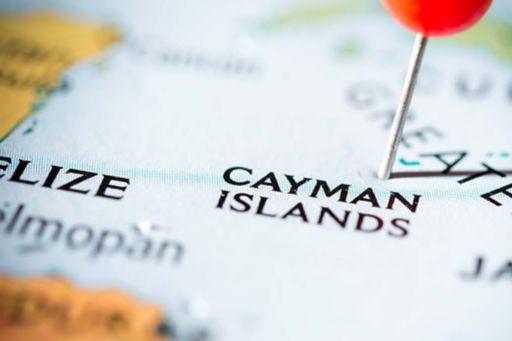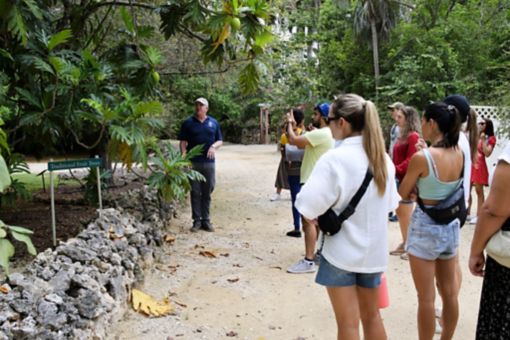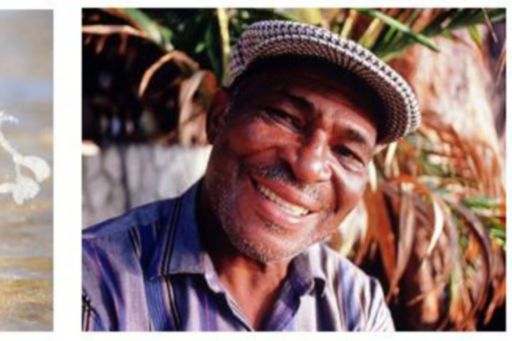Fast facts in the Cayman Islands
Fast facts in the Cayman Islands
The KPMG Cayman office was established in Grand Cayman in 1966, growing from a one-person office to currently over 300 employees.
The KPMG Cayman office was established in Grand Cayman in 1966.
Fast Facts
- Composition: Grand Cayman, Cayman Brac, Little Cayman
- Capital: George Town, Grand Cayman
- Population: Approximately 71,000*
- Weather: averages of 88 degree Fahrenheit or 31.1 degree Celsius year round
- Main industries: Tourism, Financial Services
- Language: English
- Political status: Overseas Territory of the United Kingdom (i.e. British dependency)
- Nationalities: Over 135 different nationalities are represented in Cayman. The majority of the population is Caymanian, British, American, Canadian, Filipino, South American, Australians, South Africans and French.

Size
- Grand Cayman: area-76sq. miles; length-22 miles; average width 4 miles.
- Cayman Brac: area-15sq. miles; length-12miles; average width-1.5miles.
- Little Cayman: area 10sq.miles; length-10 miles; average width-just over 1 mile.
Location
- Grand Cayman: Western Caribbean, about 150 miles south of Cuba, 480 miles southwest of Miami, 180 miles northwest of Jamaica.
- Cayman Brac: 89 miles northwest of Grand Cayman.
- Little Cayman: 5 miles west of Cayman Brac.
Cost of living
The cost of living is generally on par with many metropolitan areas/cities in the United States or the United Kingdom, as most commodities are imported and have to bear the cost of freight and insurance, plus customs duty if payable. There are no direct taxes such as income tax, company or corporation tax, inheritance tax, capital gains or gift tax in the Cayman Islands.
Banking
There are a number of major banks present on the island offering regular banking services, including online banking. The Cayman Islands dollar is pegged to the US dollar at the rate of CI$1 = US$1.20. Major credit cards are accepted in most restaurants, supermarkets, and shops.
Due to regular shipping services there are a wide range of food items, household goods, clothing, and other items available at supermarkets and retailers on Grand Cayman. A newcomer could buy locally all that is needed to establish a home.
Entry and Immigration
Cayman Islands legislation requires that all persons of non-Caymanian status who are engaged in any form of employment must hold a valid work permit. For professional staff most work permits are issued for the period of two years.
Casual visitors are not permitted to take up or solicit employment whilst on the island.
A valid work permit will allow the holder and approved dependants to live and remain in the Cayman Islands for an extended period. Dependants however must obtain their own work permit in order to work. Common Law partners do not qualify as dependants under the law.
Healthcare
In addition to the main Government Hospitals managed by the Health Services Authority, there are a number of quality medical centers, facilities, and reputable physicians and specialists on the Island.
Health Insurance coverage is mandated in the Cayman Islands for all eligible employed persons over the age of 18.

Schooling
There are a number of Government and Private primary and secondary schools on the Island offering a curriculum which follows either the American or British schooling systems. There are also two colleges, a law school, and a medical school offering tertiary educational opportunities on Island. Children of expatriate residents (e.g. work permit holders) are required to attend private institutions.
Accommodation
There is a large supply of rental units available on the Islands with the costs mainly driven by location. On average you can expect to pay between US$1,000 and US$1,500 for a typical one-bedroom apartment and between US$1,500 and US$2,600 for a typical two-bedroom apartment. In almost all cases you will also be required to make a security deposit of two months rent, the first and last month.
Most rental units are available turnkey and are fully furnished, with dishes, linens and other household accessories.
Utilities
Electricity supply in the Islands is 110 volts/60hz, as in North America. The cost will depend on the amount used in particular for air conditioning. An average bill would be approximately US$200 per month. The average water bill for a two-person household is US$100. Depending on rental agreements, deposits for electricity and water may be required from the tenant.
The local telephone company FLOW will require a deposit of US$250. However, if their Direct Debit facility is used, the deposit is reduced.
There is a charge for cable TV although many rental agreements include these charges in the monthly rental.
Vehicles
Traffic drives on the left and traffic rules follow the British pattern.
Vehicles will vary in cost depending on the type of vehicle and where you choose to purchase the vehicle (i.e. dealers, private, ex-rentals). You can expect to spend between US$5,000 and US$6,000 on a used vehicle in good condition.
Insurance is mandated for all drivers and costs will vary depending on the type of coverage taken out, i.e. third party or fully comprehensive. A reasonable expectation in this regard is US$600 a year.
The vehicle licensing fee is US$220 or US$245 for 12 months depending on the size of the engine of the car. The costs associated with a transfer of vehicle ownership is minimal fee of US$30. If needed, new registration plates for your vehicle will incur a fee of US$105.
You will be required to obtain a Cayman Islands Driver's Licence, the fee of which will be between US$155 – US$305.
For further information on this please visit: www.dvdl.gov.ky.
Social/Recreational activities
Socially, there are many things to do in the Cayman Islands from community and church to sports and recreation. The Cayman Islands also boasts a wide variety of eating establishments and restaurants, from coffee houses to elegant dining.
You can get involved with water activities like diving snorkeling, fishing, boating, sailing and swimming. There are many sports offered on island such as rugby, soccer, softball, tennis, squash, cricket, golf, yoga and dance. If you prefer a set routine you can join a gym which offers weight lifting, training, cardio equipment and classes. There are also over 11 annual races every year including Marathon’s, Triathlons and Community events.
The related links on this page contain reference materials and information about the Cayman Islands. We hope that these links may assist you in your search for information about this jurisdiction.
*Source: www.eso.ky

